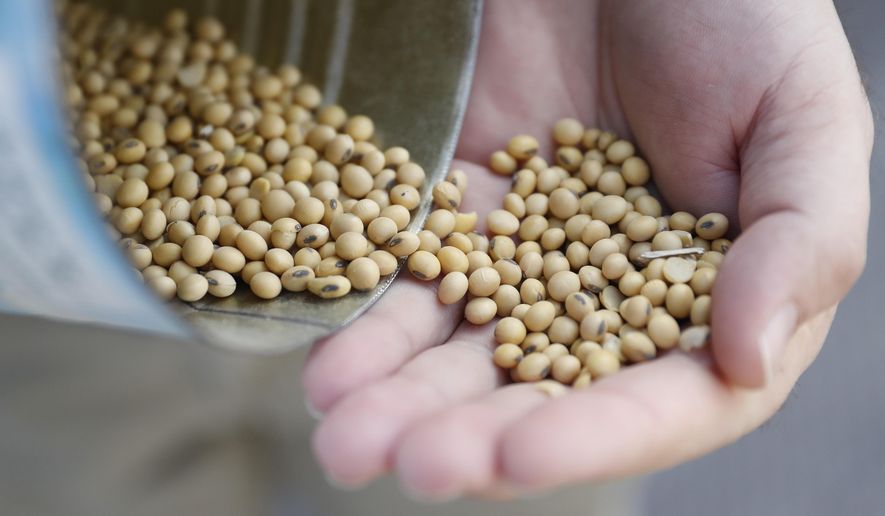Soybeans were one of the first major casualties in the escalating U.S.-China tariff war and Russia is hoping to exploit the situation by cutting deals with Chinese agribusinesses to make up for lost supply.
The Kremlin said this week it will offer some 2.5 million acres of arable land to foreign investors in what analysts describe as a bid to replace the U.S. as China’s go-to soybean partner.
China has fallen short on the beans in the wake of this summer’s high-stakes trade battle with Washington — a battle that saw Beijing dramatically cut its soybean purchases from the U.S. in response to tariffs imposed on Chinese products by the Trump administration.
Chinese officials have said they plan to shave nearly 7 million tons off the roughly 33 million tons they had been buying annually from U.S. farms, according to U.S. Department of Agriculture figures.
Soybeans represent U.S. farmers’ single largest agricultural export to China, which takes in roughly 60 percent of world supply annually. Beijing’s cut in purchases from the U.S. market has sent American futures prices for the bean tumbling.
Brazil and Argentina, with extra production and distribution capacity, have stepped into the vacuum, leaving the U.S. farmers turning to Europe with hopes of finding new buyers there.
While Mr. Trump recently cut a deal with European Union Commission President Jean-Claude Juncker to secure more sales, trade analysts say the overall impact pales in comparison to the lost Chinese orders. While the Russian move could worsen the situation for U.S. growers, some argue the Kremlin’s offer is sketchy at best.
The offer involves arable land in Russia’s Far East, a region Moscow claims the land is great for soybeans. But many private experts say the climate is too harsh for major production at competitive prices.
China, meanwhile, is anxious to secure a reliable supply, while U.S. farmers continue to search for a place to sell the surplus they now have on their hands.
The situation is compounded by trade forecasts that U.S., Brazilian and Argentine farmers are all on track for a record crop this year. “By the time we get to next March, we could be awash in beans,” said Brian Harris, executive director of Global Risk Management Corp., told world-grain.com this week. “But you’ve got a long way between now and then.”
• Dan Boylan can be reached at dboylan@washingtontimes.com.




Please read our comment policy before commenting.